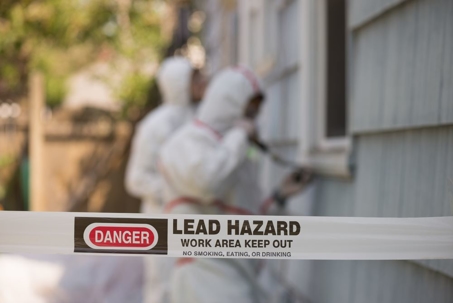Rhode Island is taking a step forward in protecting the safety and well-being of its residents with new lead paint laws coming into play in 2024. These laws hold landlords accountable for providing a safe living environment and helping tenants avoid exposure to the dangers of lead paint in their homes.
This post will discuss the landlord requirements under these new laws, as well as any exemptions that may apply. If you are a landlord in Rhode Island, it's crucial to be aware of these changes to avoid potential fines and penalties. Let's dive in.
Rhode Island Lead Paint Laws: Landlord Requirements
The new lead laws to be implemented have been designed to provide enhanced protection for the tenants. The regulations come with guidelines as well as penalties to deter noncompliance and preserve the well-being of the community.
These measures aim to mitigate the potential health risks associated with lead paint and promote a safer living environment for Rhode Island residents.
As noted in the Rhode Island Association of Realtors, the two following amended laws will be effective in 2024:
Rhode Island Senate Bill 656
Under this law, "the exemption for owner-occupied two- and three-unit dwellings from the lead hazard mitigation law will be eliminated in 2024. Owners of these properties must obtain lead certificates if the property was built before 1978. Effective January 1, 2024."
Requirements include but are not limited to:
- Learning about lead hazard awareness either through a seminar, themself, or through a designated individual
- Evaluating the unit and premises for lead hazards abiding with requirements for a lead hazard control evaluation
- Correcting any identified lead hazards
- Providing tenants with the following:
- Basic lead hazard control information;
- A copy of the independent clearance inspection; and
- Guidelines on notifying about deteriorating conditions
- Correcting lead hazards after notification from a tenant
For more comprehensive details and in-depth information, refer to Senate Bill 656.
Rhode Island Senate Bill 804
Under this regulation, "landlords must register their property and current lead certificates with the RI Department of Health. DOH will create a public registry if it has enough funding. Effective September 1, 2024"
Failure to comply with this amended law can result in substantial fines. It is crucial to stay informed and understand the implications of this legislation. For more detailed information, please refer to Senate Bill 804.
Lead Paint Law Exemptions
Certain properties are exempt from the lead hazard mitigation requirements effective next year. These exemptions are specifically designed to account for various factors such as property type, age, and specific conditions.
Exemptions include:
- "Rental units with a Full Lead-Safe or current Conditional Lead-Safe Certificate."
- "Temporary, seasonal housing rented no more than 100 days in a calendar year to the same tenant."
- "Housing designated for residents age 62 or older."
- "Owner-occupied properties with two or three units (until January 1, 2024)."
Contact Our Landlord/Tenant Attorney
Navigating the complexities of Rhode Island's new lead paint laws can be challenging for landlords, but you don't have to go it alone. Our experienced landlord/tenant attorney at the Law Office of Steven J. Hart can guide you through the process to have your rental properties comply with these new regulations and help you avoid the potential pitfalls.
Furthermore, if you need seasoned legal representation for a landlord-tenant dispute or need guidance in drafting precise legal agreements to prevent any potential misunderstandings, our team can assist you.
Get in touch with us today at (888) 701-0919 or fill out our form online.

